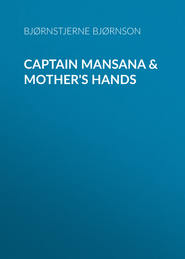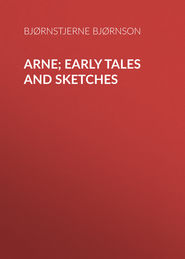По всем вопросам обращайтесь на: info@litportal.ru
(©) 2003-2024.
✖
Three Comedies
Автор
Год написания книги
2019
Настройки чтения
Размер шрифта
Высота строк
Поля
Hagbart. Go away!
Bishop. Yes, to your uncle's, for instance. Only for a week or a fortnight. You need to clear your thoughts, badly—about all sorts of things. Your brain is in a whirl.
Hagbart. That is true; but—
Bishop. Speak out!
Hagbart. My brain has been in a whirl much longer than you have had any idea of. It has been so ever since that day in winter when I did Mrs. Falk such a horrible injustice.
Bishop. Not exactly an injustice, but—
Hagbart. Yes, an injustice! It was a turning point in my life. To think that I should have given way to such a fanatical outburst! It ended in my being terrified at myself—well, I won't bore you with the whole story of my long fight with myself. You saw nothing of it, because I was not here. But at last, when I got ill and had to go away and take the waters, and then happened to see Aagot—the effect on me was more than anything I could have imagined. I seemed to see the truth; mankind seemed different, and I seemed to hear the voice of life itself at last. You cannot imagine the upheaval it caused in me. It must be that she had something within her that I lacked, and had always lacked! It was her wonderful naturalness; everything she did was done with more charm and gaiety than I found in any one else, and she was quite unconscious of it herself. I used to ask myself what was the reason of it—how it could be that it had been her lot to grow up so free and wholesome. I realised that it was because I had been oblivious to what I lacked myself, that I had been so fanatically severe upon others. I knew it is humiliating to confess it, but it is true. I have always been blundering and impetuous.—But what was I going to say?
Bishop. You were going to speak about Mrs. Falk, I presume.
Hagbart. Yes!—My dear uncle, don't take it amiss. But all this time I have never been able to keep away from her.
Bishop. Then it is she you have been talking to?
Hagbart. Of course!—and of course, that is to say, to Aagot too. You propose my going away. I cannot! If I could multiply myself by two, or if I could double the length of the days, I should never have enough of being with her! No, I have seen daylight now. On no account can I go away.
Bishop. And you call that seeing daylight! Poor boy!
Hagbart. I cannot discuss it with you. You would no more understand than you did that day when you took away those books of grandmother's from me and put them in the lumber-room.
Bishop. Oh, you are bringing that up again? Well, you are at liberty to do as you please. You shall not have the right to say I have exercised any compulsion.
Hagbart. No, uncle, you are very good—to me.
Bishop. But there is a new fact to be taken into consideration. I have noticed it for some days.
Hagbart. What do you mean?
Bishop. In all this conversation we have just had, you have only mentioned Aagot's name twice, at most.
Hagbart. But we were not talking about Aagot.
Bishop. Are you not in love with her any longer?
Hagbart. Not in love with Aagot? (Laughs.) Can you ask that? Do you mean to say—?
Bishop. Yes, I mean to say—
Hagbart (laughing again). No, that is quite a misunderstanding on your part, uncle.
Bishop. Well, I say it again: go away for a week or a fortnight, Hagbart! Consider the situation from a distance—both your own position and that of others!
Hagbart. It is impossible, absolutely impossible, uncle. It would be just as useful to say to me: "Lie down and go to sleep for a week or a fortnight, Hagbart; it will do you good"! No. All my faculties are awake at last—yes, at last—so much so, that sometimes I can scarcely control myself.
Bishop. That is the very reason.
Hagbart. The very reason why I must go straight ahead, for once in my life! No, I must stay here now.—Well, good morning, uncle! I must go out for a turn.
Bishop. Go to call on Mrs. Falk, you mean.
Hagbart (laughing). Unfortunately I haven't the face to do that till this afternoon; I was there the whole day yesterday. But our conversation has set all my thoughts agog again, and when I have no means of appeasing them I have to go out and walk. Thank you, uncle, for being so indulgent to me!
Bishop. Then you don't wish to read my letter?
Hagbart. Ah, that is true—the letter! That upsets the whole thing again. I don't know how I came to forget that.
Bishop. You see for yourself how confused and distracted you are. You need to pull yourself together. Go away for a little!
Hagbart. It is impossible!—Good-bye, uncle!
Bishop. Here is grandmother!
[Enter the GRANDMOTHER and CORNELIA.]
Hagbart. Good morning, grandmother! Have you slept well?
Grandmother (coming forward on CORNELIA's arm). Excellently!
Cornelia. She slept well into the morning.
Bishop. I am delighted, grandmother. (Takes her other arm.)
Grandmother. You needn't shout so loud. It is a fine day to-day and I can hear very well. (To HAGBART.) You didn't come in to see me last night.
Hagbart. I came in too late, grandmother.
Grandmother. I tell you, you needn't talk so loud.
Cornelia. She always wants to make out that she can hear.
Grandmother (as they settle her in the big chair by the window). This is a nice seat—
Bishop. And I am always delighted to see you sitting there.
Grandmother. The window—and the mirror over there.
Cornelia. Yes, it enables you to see everything.
Grandmother. How you do shout, all you good people!
Bishop. I must go and change my things, if you will excuse me. (Goes out to the right.)
Cornelia. Do you want anything more?
Bishop. Yes, to your uncle's, for instance. Only for a week or a fortnight. You need to clear your thoughts, badly—about all sorts of things. Your brain is in a whirl.
Hagbart. That is true; but—
Bishop. Speak out!
Hagbart. My brain has been in a whirl much longer than you have had any idea of. It has been so ever since that day in winter when I did Mrs. Falk such a horrible injustice.
Bishop. Not exactly an injustice, but—
Hagbart. Yes, an injustice! It was a turning point in my life. To think that I should have given way to such a fanatical outburst! It ended in my being terrified at myself—well, I won't bore you with the whole story of my long fight with myself. You saw nothing of it, because I was not here. But at last, when I got ill and had to go away and take the waters, and then happened to see Aagot—the effect on me was more than anything I could have imagined. I seemed to see the truth; mankind seemed different, and I seemed to hear the voice of life itself at last. You cannot imagine the upheaval it caused in me. It must be that she had something within her that I lacked, and had always lacked! It was her wonderful naturalness; everything she did was done with more charm and gaiety than I found in any one else, and she was quite unconscious of it herself. I used to ask myself what was the reason of it—how it could be that it had been her lot to grow up so free and wholesome. I realised that it was because I had been oblivious to what I lacked myself, that I had been so fanatically severe upon others. I knew it is humiliating to confess it, but it is true. I have always been blundering and impetuous.—But what was I going to say?
Bishop. You were going to speak about Mrs. Falk, I presume.
Hagbart. Yes!—My dear uncle, don't take it amiss. But all this time I have never been able to keep away from her.
Bishop. Then it is she you have been talking to?
Hagbart. Of course!—and of course, that is to say, to Aagot too. You propose my going away. I cannot! If I could multiply myself by two, or if I could double the length of the days, I should never have enough of being with her! No, I have seen daylight now. On no account can I go away.
Bishop. And you call that seeing daylight! Poor boy!
Hagbart. I cannot discuss it with you. You would no more understand than you did that day when you took away those books of grandmother's from me and put them in the lumber-room.
Bishop. Oh, you are bringing that up again? Well, you are at liberty to do as you please. You shall not have the right to say I have exercised any compulsion.
Hagbart. No, uncle, you are very good—to me.
Bishop. But there is a new fact to be taken into consideration. I have noticed it for some days.
Hagbart. What do you mean?
Bishop. In all this conversation we have just had, you have only mentioned Aagot's name twice, at most.
Hagbart. But we were not talking about Aagot.
Bishop. Are you not in love with her any longer?
Hagbart. Not in love with Aagot? (Laughs.) Can you ask that? Do you mean to say—?
Bishop. Yes, I mean to say—
Hagbart (laughing again). No, that is quite a misunderstanding on your part, uncle.
Bishop. Well, I say it again: go away for a week or a fortnight, Hagbart! Consider the situation from a distance—both your own position and that of others!
Hagbart. It is impossible, absolutely impossible, uncle. It would be just as useful to say to me: "Lie down and go to sleep for a week or a fortnight, Hagbart; it will do you good"! No. All my faculties are awake at last—yes, at last—so much so, that sometimes I can scarcely control myself.
Bishop. That is the very reason.
Hagbart. The very reason why I must go straight ahead, for once in my life! No, I must stay here now.—Well, good morning, uncle! I must go out for a turn.
Bishop. Go to call on Mrs. Falk, you mean.
Hagbart (laughing). Unfortunately I haven't the face to do that till this afternoon; I was there the whole day yesterday. But our conversation has set all my thoughts agog again, and when I have no means of appeasing them I have to go out and walk. Thank you, uncle, for being so indulgent to me!
Bishop. Then you don't wish to read my letter?
Hagbart. Ah, that is true—the letter! That upsets the whole thing again. I don't know how I came to forget that.
Bishop. You see for yourself how confused and distracted you are. You need to pull yourself together. Go away for a little!
Hagbart. It is impossible!—Good-bye, uncle!
Bishop. Here is grandmother!
[Enter the GRANDMOTHER and CORNELIA.]
Hagbart. Good morning, grandmother! Have you slept well?
Grandmother (coming forward on CORNELIA's arm). Excellently!
Cornelia. She slept well into the morning.
Bishop. I am delighted, grandmother. (Takes her other arm.)
Grandmother. You needn't shout so loud. It is a fine day to-day and I can hear very well. (To HAGBART.) You didn't come in to see me last night.
Hagbart. I came in too late, grandmother.
Grandmother. I tell you, you needn't talk so loud.
Cornelia. She always wants to make out that she can hear.
Grandmother (as they settle her in the big chair by the window). This is a nice seat—
Bishop. And I am always delighted to see you sitting there.
Grandmother. The window—and the mirror over there.
Cornelia. Yes, it enables you to see everything.
Grandmother. How you do shout, all you good people!
Bishop. I must go and change my things, if you will excuse me. (Goes out to the right.)
Cornelia. Do you want anything more?











